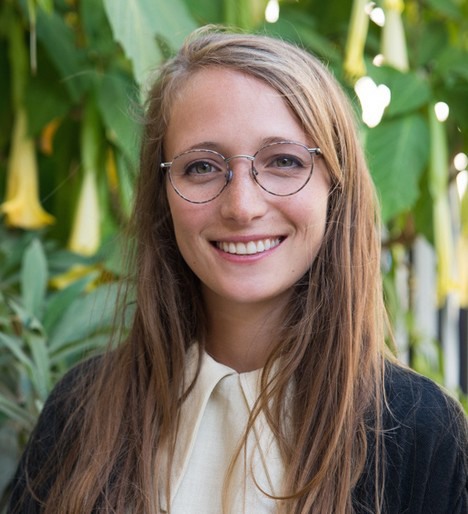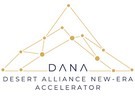Water scarcity is a major challenge for growers all around the world. To some, this may come as something new to deal with, but other growers have faced this reality for many years. Yet, they found ways to thrive, nonetheless.
DANA Global is a company specializing in desert tech, and they have been supporting growers in the Middle-East/North Africa region. "DANA works to support early-stage tech solutions addressing challenges of sustainable agriculture, food security, waste management, and circular economy by testing and ensuring commercial feasibility at our beta sites and supporting the companies as they scale up into the market," says Zada Haj, CEO of DANA.
"We focus on female founders not only because of their resilience and proven higher returns, but because we see a different business culture in women-led companies that makes a lot of sense for our sectors - more patient and realistic financial timeline, with a consideration of the collective as opposed to just financial ROI."
Growing in the desert
The company is based in Abu Dhabi and has gained a lot of experience in dealing with the reality of desertification. "Testing and implementing agritech solutions in this part of the world will act as a role model for parts of the globe facing increased water scarcity, rising temperatures, and soil depletion," she remarks. "We believe that MENA will be the main exporter of desert tech farming solutions while maintaining its status as a primary exporter of fresh produce to the EU, leading the agribusiness markets."
Zada Haj
According to her, water scarcity has affected food systems and safety globally in multiple ways. "In every way - irrigation methods, cooling systems, desalination, indoor farming - everything is affected," she points out. At the same time, some regions suffer more than others. "One thing we discovered through our work in Iraq was that the classic rice and wheat farming methods of flooding not only used up way too much water but also depleted the soil entirely, leaving a formerly fertile region extremely saline and nutrient deficient. Water and soil are very connected, and when water is misused, it affects many other ecosystem elements," she adds.
And, of course, in the harsh climate of the UAE, greenhouse growers also have to walk a very difficult path. "Here in the UAE, it is a tricky balance between environmental feasibility and financial feasibility," says Katie Wachsberger, co-founder and COO of DANA. "Many of the crops that are more feasible to grow in this climate can not compete with the low prices of imported crops, such as tomatoes or peppers. At the same time, the more expensive crops that would bring significant income to the farmers are much more tricky to grow in this climate. We are finding a happy medium with high-tech shade solutions for crops such as blueberries and figs," she adds.
Dealing with water scarcity
Of course, not every grower is affected by water scarcity in the same way. "Some growers can implement systems that can adapt to the scarcity, whether IoT sensors and data collection to ensure the minimal and most effective use of water, while others are in more traditional settings where the education and infrastructure do not allow for such solutions," Katie continues.
"This is one of the reasons why we emphasize soil regeneration and low-tech biochem-based solutions that do not necessarily require high levels of digital literacy. The developing world will continue to grow and export massive amounts of produce for the global north, and we need to make sure that this does not come at the expense of these lands and populations, which is why we emphasize crop rotation, regenerative practices, saline resistant seed varieties, and the like. It is also important to mention that not all regions suffer the same effects of climate change. Some regions will get much warmer and dryer, while others will experience flooding and temperature drop. It is hard to predict exactly how these changes will affect the quality of and access to water, but we need to be technologically prepared for the unexpected."
The Food Engineer
To better explain how desert tech can help growers deal with water scarcity, Katie and Zada recount their project with one of DANA's portfolio companies, The Food Engineer.
"The Food Engineer has developed an extremely agile aeroponic growing tower that can be utilized in greenhouse settings and on traditional farms, using 95% less water than drip irrigation systems. We are very optimistic about these lean solutions that do not require highly regulated environments and can be adapted to diverse," Zada says.
"We believe that the solution for food security (and job security in the agri space) is based on a clever combination between indoor and traditional farming - we grow in the ground what is possible and beneficial for the soil and the earth, and we grow indoors what is feasible for the vertical farming systems. It is not just a matter of technology but also a matter of the market, and these various factors should inform a combined approach," Katie remarks.
 Katie Wachsberger
Katie Wachsberger
From specific to general
Working on projects in the MENA areas is the perfect testing ground for a company like DANA. "Because the MENA climate is so harsh, it is like a beta site for future agricultural challenges. We are proud to be working in this part of the world and witnessing a promising future for growers, even as conditions remain harsh. As long as the boundaries are respected, and we work within what is possible and beneficial for the environment," says Zada.
"Our company works with tech solutions that, once implemented in the market, will change the agricultural landscape for the better. For example, one of our companies BioCloud has developed a solution for biopesticides that do not even touch the plant but rather allow an organic solution to simply evaporate in the vicinity, repelling over 90% of pests.
"We also have Dayts, which has developed high-value ingredients for the food and pharma industry from date waste, including date pits and fibers, increasing the profitability of date farms regionally. We've also worked with Sufresca, increasing the shelf life of produce post-harvest by up to threefold. These sort of solutions not only increase the sustainability and circularity of farms in our region but also increase the profitability of the sector, which still makes up large swaths of MENA's GDP."
Thus, although challenging, DANA is pretty confident in the success of this sector. "We are extremely confident about our sectors' future here in MENA, as we see the exponential increase of both public and private capital being invested in agriculture and agritech throughout the Gulf countries. We will continue to lead by example, demonstrating the ways in which the private sector and innovation play a significant role in creating a new agricultural landscape that is more sustainable, innovative, and profitable. And of course, we intend to continue to promote women leading the way," they conclude.
For more information:
DANA Global
contact@dana-global.com
dana-global.com
